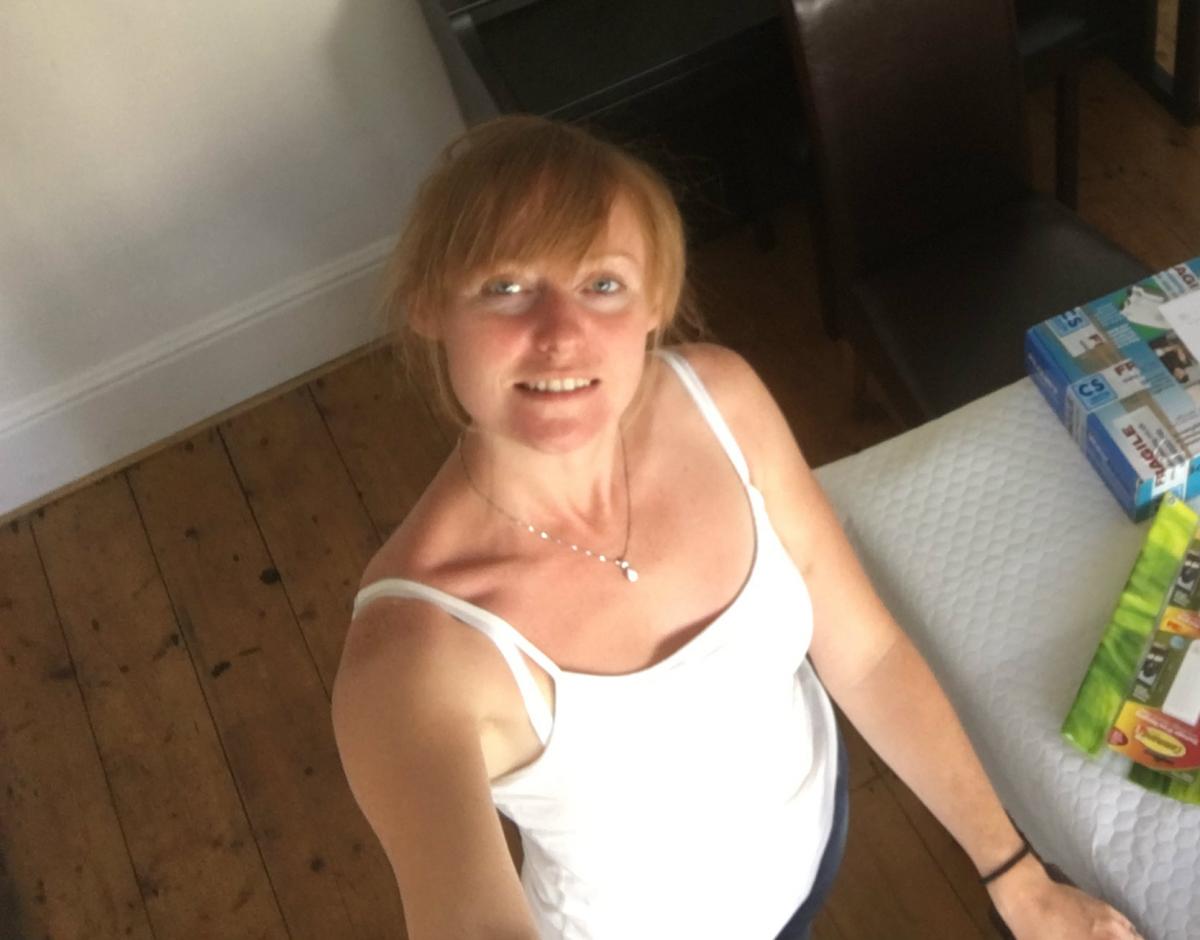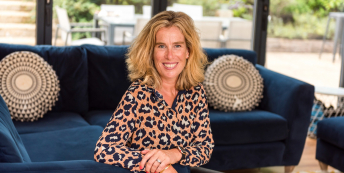“I was more and more aware that life was passing me by.”

What work were you doing previously?
I was a solicitor specialising in employment law.
What are you doing now?
I'm an entrepreneur – the owner of 'Where's That Bean' mobile coffee service.
Why did you change?
I really enjoyed advising my clients, working with my colleagues and my firm.
The problem was that I constantly lived with self-doubt. I always felt that I wasn't good enough, despite what my superiors, peers and clients said. I worked increasingly hard, sacrificing my evenings and weekends. I became more and more tired and unable to enjoy 'downtime' because I was always trying to catch up on rest rather than having the energy to enjoy different activities.
I was always becoming more and more aware that life was passing me by; it wasn't healthy to work like this, putting so much pressure on myself.
I began searching the internet for some kind of help. One message that really resonated with me was that the feeling of security I had, from being employed with a good salary, was in fact an illusion. Anything could change at any time; there were things outside my control in any given situation. I resolved that if the feeling of security was the difference between staying and going, it was no more risky for me to leave my career in law, than it was to stay.
Another message I found comforting was that the worst-case scenario was not necessarily losing things that gave me a feeling of stability (my house, for example). If I chose to leave, I could also choose to return to law.
So, after a lot of soul searching, I decided to take a break from private practice and make some space to try other things. That makes it sound a lot easier than I found it. There were many tears and changes of heart before I finally told the partners I'd decided to resign.
When was the moment you decided to make the change?
I cannot recall the exact moment I decided to make the change; it was more of a process.
I was challenged to face some difficult realities – in particular, whether I could work in a way that would make me see my work (and performance) differently. Ultimately, I came to recognise that I could spend a number of years trying, but still look back and have achieved nothing. If that happened, I would indeed be allowing life to just pass me by. So, I decided to leave, without any real idea of what I was going to do instead, but certain that I was going to do 'something'.
Are you happy with the change?
So far I am happy with the change.
I have good days and bad days. On good days I feel unstoppable, energised and excited to see what I can make happen for myself. I do have some bad days though when I feel scared, or wracked with self-doubt and guilt.
The best-case scenario is true satisfaction and fulfilment. That is worth the bad days!
What do you miss and what don't you miss?
I miss my colleagues and clients.
I miss being part of a group and 'talking shop' with people. I miss the intellectual challenge and debating advice strategies with my supervising partners. Even though I keep in touch with my ex-colleagues, things will never be the same again.
I don't miss the feeling of 'firefighting' and lack of 'downtime'. Constantly reacting to situations depending on their urgency and dealing with a backlog in periods without urgent instructions. In contrast, my current project is refreshingly proactive and creative.
How did you go about making the shift?
My first steps were spreadsheet related.
I had built up some savings with my partner, so I calculated how many months of living costs that bought me (with his agreement). I looked at where we could save money on the normal outgoings and came up with a period for which I knew the vital expenses would be covered.
I knew from the start that working part time would not work well for me. I was already throwing all the time I had at the job. Reducing my hours to part time would have exacerbated my issues. That just wasn't for me. As long as I was working as a solicitor, I would be too busy to think about what else I could do.
Once I knew how long I could pay the essential living costs for, I designated that as a break: time to think.
Once I had decided to resign, I told the partners. After I'd confirmed my resignation in writing, I felt like a huge weight had lifted off my shoulders. I immediately started thinking about the possibilities and felt truly excited about the prospect that I could choose to do anything!
I contacted universities and colleges to see whether I could organise some hourly paid lecturing opportunities. I was very fortunate in having help from a couple of the partners at the firm who put me in touch with contacts of theirs.
Then came the wacky idea of starting up my own business. It had started as a joke – that I would simply spend my time walking my dog. But somewhere between then and now it started to grow and take shape. I had the idea to sell coffee from a trike to other dog walkers while walking my dog. I began some market research and found there was demand for this type of venture. Emboldened by my resignation, I thought "Why not? What have I got to lose?"
From there, Where's That Bean was born – it's a trike, kitted out with an espresso machine and grinder together with the associated power sources. I cycle around the parks with my dog and sell coffee to the people we meet.
What didn't go well? What 'wrong turns' did you take?
So far things have gone well!
I'm sure there are some 'wrong turns' up ahead (or perhaps already made but not yet realised), but I will have to cross those bridges when I come to them.
How did you handle your finances to make your change possible?
Once I'd worked out how long the mortgage and bills were safe for (with the money we'd already saved up), I wrote down a few simple rules to live by while my income was not guaranteed.
I gave myself a reasonable but limited spending budget and used cash rather than cards so that I could more easily keep track of my outgoings. I made sure that all credit cards and overdrafts were paid off so that I was starting 'in the black' and I decided to no longer carry my bank cards around with me.
I also created a forecast of how much of a 'credit buffer' I had in the absolute worst-case scenario of running out of money and not being able to find paid employment. I don't intend to use it but I think it has given me some peace of mind.
On reflection, I think that this process gave me some comfort that there wouldn't be an immediate backlash from leaving law. In reality, Where's That Bean (if successful) will pay the bills itself and so the savings and credit buffer should remain untouched.
What was the most difficult thing about changing?
I worried that I would be letting myself down, after so many years invested in training to be a solicitor and then working so hard to be the best solicitor I could be.
I worried I would be letting my loved ones down – those who had supported me over the years and who'd benefitted from my income.
I was (and continue to be) bothered by a little voice that says I need to stop being silly and go back to my real job. There have been many people who have been sceptical about my decision. Coming from a position of vulnerability, I've found it challenging to move through the scepticism, particularly when it echoes my own insecurities about the new venture. However, I've found it a great help to surround myself with supportive people and to speak freely and openly with the sceptics.
Part of the way I've overcome these things is to remember that nothing is permanent. I've taken a 'break' from the law, not necessarily left it for good. I can choose to go back if I want to.
What help did you get? 
I made a few 'nothing ventured, nothing gained' decisions.
I applied to take part in a fully funded group for entrepreneurs to receive 12 weeks of mentoring and training in starting up a business (Welsh ICE 5-9 Club), which I stumbled across on Facebook. To my utter amazement I was accepted and as a result made many connections both inside and outside of the group. It also boosted my confidence and helped me recognise my strengths and weaknesses.
I spoke to everyone and anyone about my business idea and was taken aback at the generosity of others in the helpful advice they were willing to give me. One café owner's guidance meant that I saved approximately £10,000 in start-up costs! I've gone from feeling as if no one was in my position or could understand, to being surrounded by people who have also taken a leap of faith to change their careers or life situations. Many of these people I already knew, but I'd never realised that they'd done it.
Also, my ex-colleagues were (and continue to be) a great source of support.
I made early connections with local suppliers for my business who have both kept momentum going and also been very supportive.
What resources would you recommend to others?
TED talks.
What have you learnt in the process?
Each step I took away from my career has seemed so huge that I've felt like I've needed climbing equipment!
Looking back on it, so far it has never been as bad as it seemed and even though I feel sad to move away from something I've invested myself in for so long, I don't regret it.
What would you advise others to do in the same situation?
Have faith in yourself.
You are the only person who can properly look after you. You are the only person who really knows what you are looking for out of life.
Don't be afraid to ask for help if you need it, but try to be clear about why you're asking so that you can make the most out of the help you are given.
If possible, leave a career for positive reasons rather than negative ones.
Find out more about Gemma's business at www.facebook.com/wheresthatbean.
What lessons could you take from Gemma's story to use in your own career change? Let us know in the comments below.



